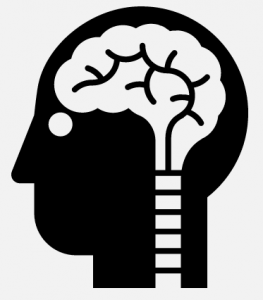 The March 13 decision in Johnson v. NYS Office of Alcoholism and Substance Abuse, 1:16-cv-9769 (S.D.N.Y. March 13, 2018) shouldn’t be particularly interesting. The plaintiff claimed to be disabled because he was a recovering alcoholic. The Court dismissed the complaint because the plaintiff did not allege that his alcoholism interfered with a major life activity, explaining:
The March 13 decision in Johnson v. NYS Office of Alcoholism and Substance Abuse, 1:16-cv-9769 (S.D.N.Y. March 13, 2018) shouldn’t be particularly interesting. The plaintiff claimed to be disabled because he was a recovering alcoholic. The Court dismissed the complaint because the plaintiff did not allege that his alcoholism interfered with a major life activity, explaining:
Although alcoholism is considered an ” impairment” under the ADA and the Rehabilitation Act , “more than a physical or mental impairment is required ” to satisfy the definition of “disability. ” Because ” [m]ere status as an alcohol or substance abuser does not necessarily imply a limitation under the anti-discrimination statutes, a plaintiff who alleges that he is disabled “must demonstrate not only that he . . . was actually addicted to drugs or alcohol in the past, but also that this addiction substantially limits one or more of his . . . major life activities. ” (quoting an earlier case).
The distinction between a mere impairment and a protected disability has been recognized by the courts as long as the ADA has been in effect, but it is an easy one to overlook because many impairments – hearing loss, blindness and paralysis for example – obviously interfere with major life activities. The distinction is, however, critical when it comes to mental impairments. Depending on their severity conditions like depression, anxiety and PTSD may or may not be disabling. The failure to make this distinction is one of the root causes of the sometimes silly* and sometimes tragic** misuse of regulations permitting emotional support animals on aircraft and in housing.
Before businesses take too much comfort in the Johnson case and similar decisions it must be noted that the plaintiff did not have a lawyer. Had he been represented by counsel the pleading would no doubt have been drafted to withstand an early motion to dismiss. Plaintiffs can easily take advantage of the the 2008 amendments to the ADA that expanded the definition of “major life activity” to include “the operation of a major bodily function” including neurological and brain functions. These neurological and brain functions must still be “substantially limited,” but as we discussed in “When does a mental impairment become a disability? Let the jury decide,” the absence of any helpful clarifying regulations† means that many cases cannot be resolved except by a trial. The uncertainty and expense that accompany any trial is only good for lawyers,
At the end of the day every business will have to decide just how far it is willing to push back on claims of disability based on mental impairment. A bogus claim for an emotional support gerbil that lives in an aquarium may not be worth fighting, while a similar claim for a large aggressive dog cannot be overlooked. In every case though it is worth remembering that a person claiming to be disabled must identify not just an impairment, but also a major life activity that is significantly limited by that impairment.
* No, a peacock need not be allowed on an aircraft. See, Emotional support peacock denied flight by United Airlines.
** See, Delta sets new guidelines on service animals allowed on board
† The Department of Justice took more than eight years to issue new regulations based on the 2008 Amendments, and even then failed to provide anything helpful as we discussed in “Does DOJ’s new definition of disability matter? Maybe.”

